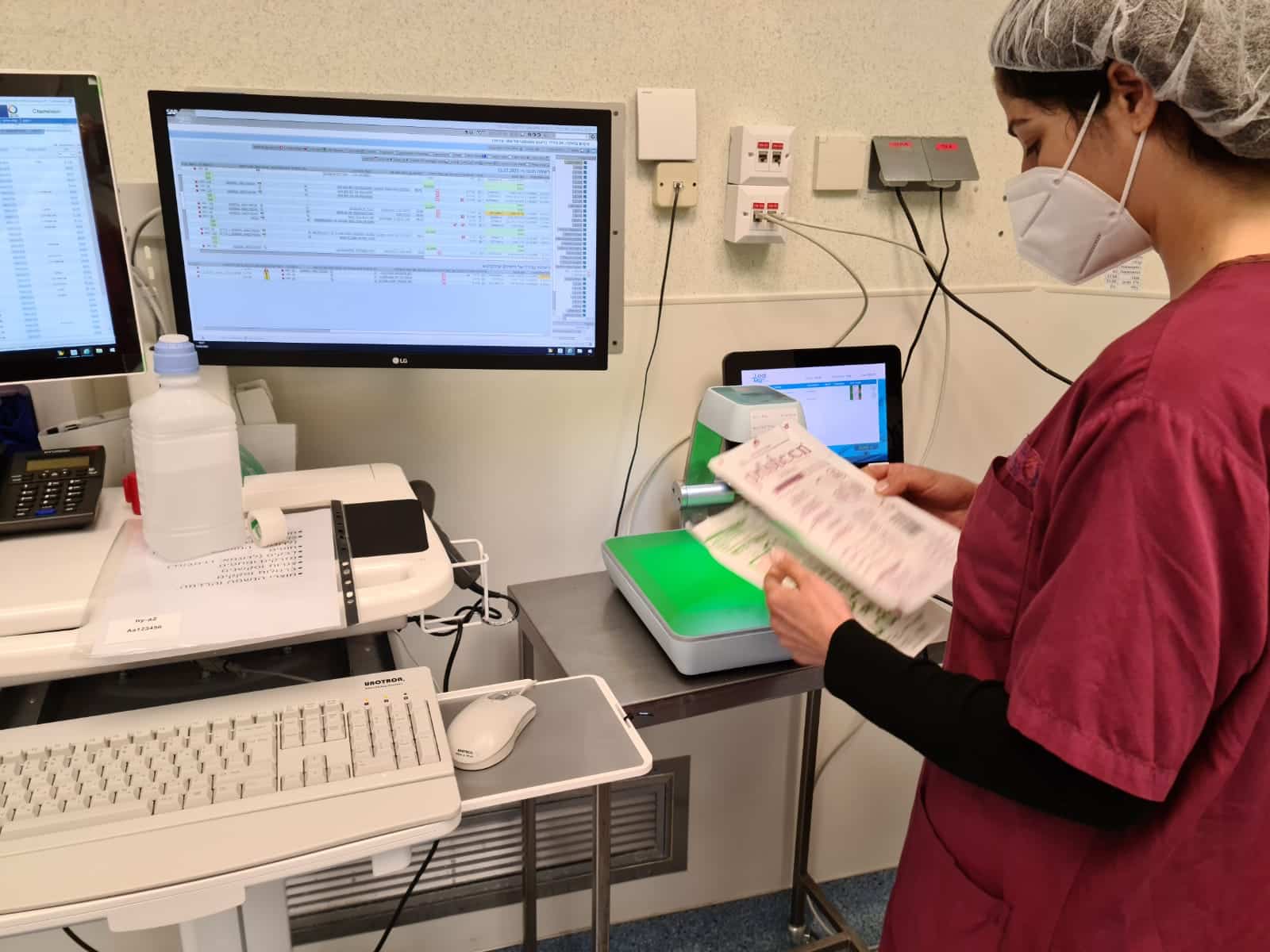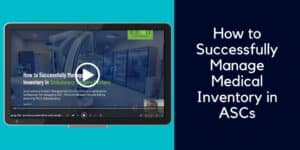What’s inside:
With the trend towards ASC-delivered elective surgeries looking to continue in 2023, the sector is bracing itself for growth, while at the same time, anticipating many challenges ahead.
This article looks at:
- The challenge of rising operating costs – including supply chain management in healthcare and workforce shortages.
- Improving healthcare processes with streamlined workflows and health-tech automation
- The increasing specialization of ASC care delivery
Operating Costs
The cost of providing care has risen in recent years and the two biggest areas of expenditure for healthcare organizations are supplies and staff.
Supply chain challenges and rising inflation have pushed up the cost of medical inventory. But it’s not just about costs, supply chain disruptions are still being experienced by ambulatory care providers, making it difficult to secure specific supplies.
Supply chain challenges have put pressure on the crucial task of ensuring that medical inventory and supplies are available at the point of care when required. These issues are pushing outpatient healthcare providers to develop a broader, more flexible supply chain, that strengthens their purchasing position.
Although high costs and supply chain disruptions are forecast to continue in 2023, during the last 12-18 months healthcare providers have learned many valuable lessons and taken action that has led to the adoption of more robust supply chain arrangements. The greater supply chain resilience that ASCs and hospitals worked so hard on during 2021/2022 should start to pay dividends. In 2023 many ASCs will benefit from their improved ability to deal with delivery delays or product shortages.
Some ASCs may still be part way through this process, but they will at least have examples of best practice and success to learn from.
As well as improving supply chain arrangements, ASCs can counteract the rising cost of medical inventory by adding accuracy and efficiency to their management of medical supplies. Many ASCs are now using automated inventory management systems that are helping them to identify areas of wastage, streamline their inventory and reduce costs.
Healthcare workforce shortages are forecast to continue in 2023, with most ASCs operating with unfilled vacancies, that they are struggling to recruit to. The problem is two-fold and common across the whole healthcare sector, lack of available candidates and the rising cost of recruitment.
ASCs are having to put together recruitment packages to attract new staff as well as to look at ways to improve motivation and retain their existing workforce.
Reduced reimbursement: In addition to rising costs ASCs are struggling with the issue of reduced reimbursement rates, so operating margins are under a lot of pressure. There is increased need for efficiency and simplicity in order to counteract the heavy running costs of care delivery.
Taming the highest areas of expenditure makes sound financial sense, so ASCs that are able to understand, control and manage their medical inventory, with a view to reducing waste and bringing costs down, will be able to strengthen their position in the market. In addition, having a focus on improving reimbursement via full and accurate data-capture will also play a role in optimizing performance.

Improving healthcare workflows
There is increased awareness, that as ASC volumes grow, inefficiencies previously tolerated will need to be addressed. ASCs are seeing renewed focus on streamlining workflows in a bid to reduce labor-intensive tasks. One ASC referred to the need to ‘Rethink and retool workflows’*1 in order to break free from the cycle of workarounds and issue resolution. The answer is surely to put in place ‘fit for purpose’ tools that get the job done.
Automation is certainly a key element in this drive for efficiency and many ASCs are embracing technology in order to both improve efficiency and reduce the pressure on their workforce.
Another key aim of ASC leadership is to improve the capture and sharing of vital data, which has an increasing role in the efficient management and planning of healthcare delivery. Many ASCs will be identifying particular areas where data-collection can be improved, for example the point of care clinical workflow.
Healthcare automation solutions are increasingly being sought to remedy known areas of inefficiency, that can be tackled using ambulatory surgery center software.

Increased Specialization of ASC delivery
Specialized ASCs are being seen by many, as the preferred delivery model. Specialist orthopedic ASCs, and cardiovascular ASCs are among the fastest-growing specialist ASC areas.
Some ASC leaders are predicting increased collaboration between specialist providers. This would result in case referral to third party ambulatory centers within a mutually supportive referral group. Could this be a model to future-proof ASCs, allowing them to attract specialist staff and gain the improved buying power that has the power to reduce their costs?
The specialization of ASCs and increased collaboration is certainly a trend to look out for in 2023.

Despite the expected challenges, there is a feeling that ambulatory centers have learned many lessons in recent years. Many have a greater understanding of the need for leaner operational workflows and automated ambulatory management solutions, as they gear up for growth.
Discover the health-tech tools for the ASC market especially designed to meet the common challenges faced by ambulatory care providers.
2023 could be a transformative year for ambulatory healthcare services.
*1 ASCs 5 biggest threats in 2023 (beckersasc.com)
*2 ‘Another challenging year for ASCs’: What’s in store for surgery centers in 2023 (beckersasc.com)






